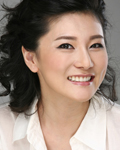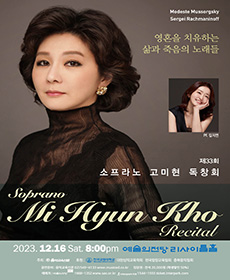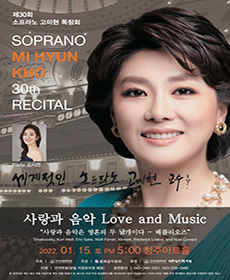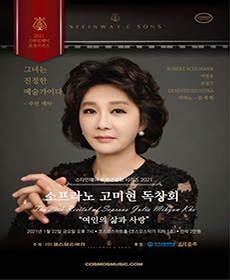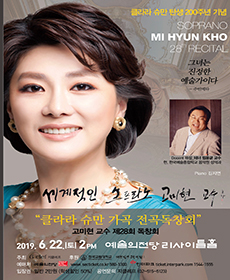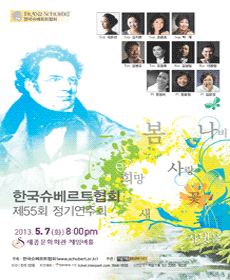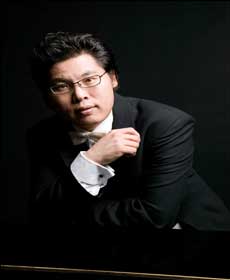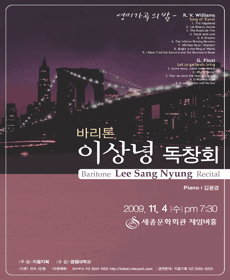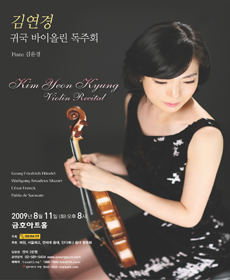소프라노 고미현 독창회 Soprano Mihyun Kho Recital 이번 공연에서 소프라노 고미현씨는 외국에서 공부하고 있는 석.박사 과정자와 견주어도 결코 뒤짐이 없는 화려하고 섬세한 노래...거침없이 풍부한 음걍과 투명한 감성,,, 노래 한마디 한마디마다 관객들의 호흡을 멈추게 만들었다. -모스크바 겨레일보 2007. 2월2일- 그녀는 섬세한 감수성과 순수한 아름다운 음색을 가진 소프라노이다. -비엔나 국립음대 Edith Mathis교수- 소프라노 고미현의 간점음 작품성과 품격에 대한 자기적인 평가에서 출발... 우아하기까지 한 그의 음악관은 음악과 사랑과 여성에 대한 시..
Franz Joseph Haydn (1732-1809)
● Aria di Cardellina (in Pietro Guglielmis "La Quakera spiritosa", Atto Io, No.8)
d"Vada adagio, Signorina,"
● Aria (da "Il Canzoniere" di Francesco Petrarca,
dSonetto XXVIII) "Solo e pensoso i piu deserti campi"
George Frideric Handel (1685-1759)
● Let the Bright Seraphim, from the Oratorio "Samson"
● Sweet Bird, from the "L'Allegro, Il Pensieroso ed il Moderato"
INTERMISSION
arr. Joseph Canteloube (1879-1957)
< Chants d'Auvergne > - Songs of the Auvergne
Trois Bourrees (Three Bourrees)
● L'aio de rotso (Spring Water)
● Ound' onoren gorda? (Where will we find our flock?)
● Obal, din lou Limouzi (Down below in Limousin)
Ernest Chausson (1855-1899)
● Le Colibri (The Humming Bird)
● Le temps des lilas (The Time of Lilacs)
● Chanson Perpetuelle (Song Without an End)
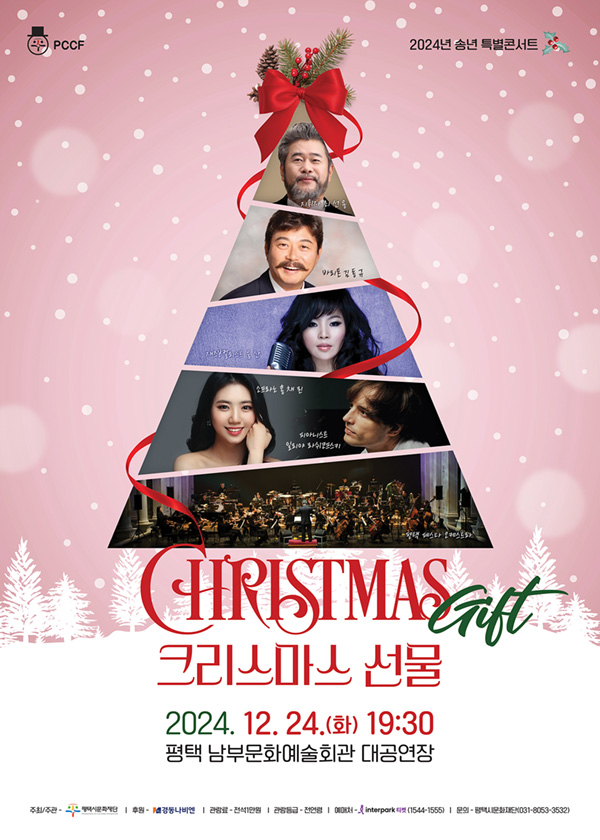
 3
3 13
13 4
4 5
5
























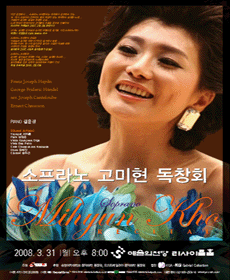














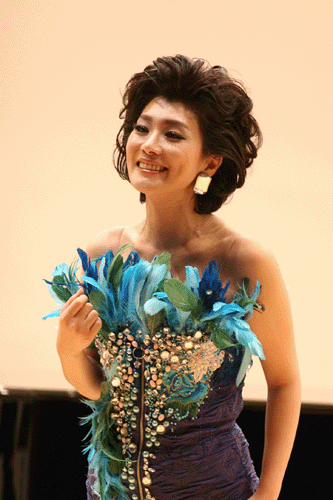
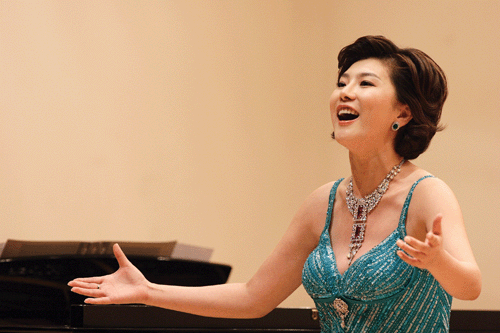



 주간
: -위
주간
: -위 















